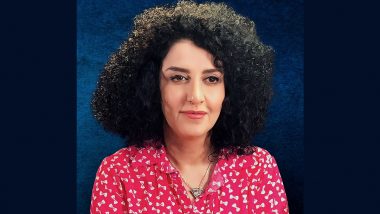Iran: Narges Mohammadi Faces 15-Month Term for Alleged Propaganda

Nobel Laureate Narges Mohammadi Faces New Legal Challenge
Nobel Peace Prize laureate Narges Mohammadi, already serving a prison sentence, has encountered further legal woes as an Iranian court imposes an additional 15-month sentence. The charges allege her involvement in spreading propaganda against the Islamic Republic, according to her family’s statement on Monday.
Ongoing Imprisonment
Mohammadi, renowned for her advocacy in human rights and social justice, has been a prominent figure in Iran. However, her activism has come at a cost, leading to her initial imprisonment. The new 15-month sentence adds to the challenges she is facing within the Iranian legal system.
Family Speaks Out
Mohammadi’s family expressed their dismay over the latest legal development. The accusations of spreading propaganda are often perceived as attempts to stifle dissent and silence voices advocating for change. Such actions raise concerns about the state of freedom of expression within Iran.
International Response and Concerns
The international community, including human rights organizations, has been closely monitoring Mohammadi’s case. This additional sentence is likely to spark renewed calls for her release and draw attention to the broader issue of human rights in Iran. Governments and advocacy groups may express concerns over the treatment of individuals expressing dissenting opinions.
Implications for Freedom of Expression
The case against Mohammadi highlights the challenges faced by activists and dissenting voices in countries with restrictive political environments. The use of charges like spreading propaganda can be a tool to curb freedom of expression and discourage individuals from speaking out against perceived injustices.
A Call for Justice and Human Rights
As Mohammadi continues to endure legal challenges, there is likely to be an increased call for justice and respect for human rights. Advocates and supporters may rally behind her cause, emphasizing the importance of protecting those who work towards positive societal change.
In conclusion, Narges Mohammadi’s situation underscores the delicate balance between activism and the limitations imposed by authoritarian regimes. The international community’s response will play a crucial role in determining the extent to which individuals like Mohammadi can continue their advocacy for human rights and justice within such challenging environments.
Repurposed article originally published in Latest LY









